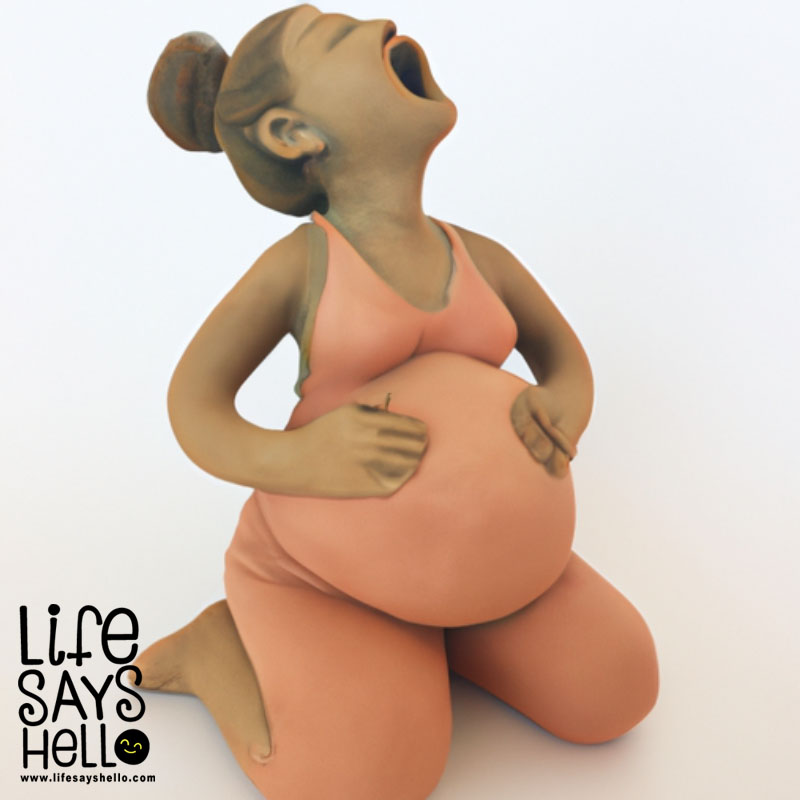Managing Low Blood Pressure During Pregnancy: Causes, Symptoms, and Tips for a Healthy Journey

Pregnancy is an exciting and challenging journey, with numerous changes occurring in a woman's body. One such change that some expectant mothers may experience is low blood pressure. In this comprehensive guide, we will explore the causes, symptoms, and tips for managing low blood pressure during pregnancy, ensuring a healthy and comfortable experience for both mother and baby.
Introduction
Pregnancy is a miraculous and transformative experience, but it also comes with its fair share of challenges. One such challenge that many expectant mothers may face is low blood pressure, which can cause a variety of symptoms and even pose risks to both mother and baby if left unmanaged. In this article, we'll delve into the causes of low blood pressure during pregnancy, the symptoms to look out for, and how to effectively manage this condition for a healthy and happy pregnancy journey.
Causes of Low Blood Pressure in Pregnancy
Low blood pressure, also known as hypotension, can occur for various reasons during pregnancy. Some common causes include:
1. Hormonal Changes
Pregnancy causes a surge in hormones, particularly progesterone, which helps to relax the walls of blood vessels. This relaxation can lead to a drop in blood pressure, especially during the first trimester.
2. Expansion of Circulatory System
As the baby grows, the mother's circulatory system expands to accommodate the increased blood volume needed to nourish both mother and baby. This expansion can cause a temporary drop in blood pressure.
3. Dehydration
Dehydration can lead to a decrease in blood volume, which in turn can cause low blood pressure. Pregnant women may be more susceptible to dehydration due to increased fluid requirements and frequent urination.
4. Nutrient Deficiencies
A lack of essential nutrients, such as iron, can lead to anemia, which may result in low blood pressure. Pregnant women need more iron to support the increased blood volume and the baby's growth.
5. Other Underlying Health Conditions
Some pre-existing medical conditions, such as heart problems or endocrine disorders, can cause low blood pressure during pregnancy. It's essential to discuss any health concerns with your healthcare provider to ensure proper management and care.
Symptoms of Low Blood Pressure During Pregnancy
Low blood pressure during pregnancy may cause various symptoms, some of which can be quite concerning for expectant mothers. Common symptoms include:
1. Dizziness or Lightheadedness
A sudden drop in blood pressure can cause dizziness or lightheadedness, which may be more noticeable when standing up too quickly or after sitting for an extended period.
2. Fainting (Syncope)
In more severe cases, low blood pressure can lead to fainting episodes, which can be dangerous for both mother and baby.
3. Fatigue
Low blood pressure can cause fatigue, making it difficult for expectant mothers to carry out daily tasks and activities.
4. Nausea
Nausea is a common symptom of low blood pressure and can be particularly distressing when combined with morning sickness during pregnancy.
5. Difficulty Concentrating
Low blood pressure can cause a lack of focus and difficulty concentrating, which can be frustrating for pregnant women trying to balance work and family life.
6. Rapid or Shallow Breathing
Low blood pressure may lead to rapid or shallow breathing, which can cause feelings of anxiety or panic.
7. Cold, Clammy Skin
Low blood pressure can cause cold, clammy skin, making expectant mothers feel uncomfortable and chilled.
Risks Associated with Low Blood Pressure in Pregnancy
If not properly managed, low blood pressure during pregnancy can pose risks to both mother and baby. Some potential risks include:
1. Effects on the Mother
- Falls: Dizziness and fainting can increase the risk of falls, which can be dangerous during pregnancy.
- Reduced Quality of Life: Persistent symptoms of low blood pressure can negatively impact a pregnant woman's quality of life, causing stress and anxiety.
2. Potential Impact on Fetal Development and Growth
- Insufficient Blood Flow to the Placenta: Severe and prolonged low blood pressure can potentially reduce blood flow to the placenta, which may affect the baby's growth and development.
- Preterm Birth: In some cases, low blood pressure may be associated with an increased risk of preterm birth.
Tips for Managing Low Blood Pressure During Pregnancy
While low blood pressure during pregnancy can be concerning, there are several ways to manage and alleviate symptoms. Here are some tips for expectant mothers:
1. Regular Prenatal Checkups
Regular prenatal checkups are crucial for monitoring blood pressure and ensuring proper care throughout pregnancy. Your healthcare provider can offer personalized advice and support based on your specific needs and circumstances.
2. Staying Well-Hydrated
Drinking plenty of water and staying well-hydrated can help maintain blood volume and prevent dehydration-related drops in blood pressure.
3. Eating a Balanced Diet Rich in Essential Nutrients
A balanced diet, rich in iron, folic acid, and other essential nutrients, can help prevent anemia and support a healthy blood pressure level.
4. Wearing Compression Stockings
Compression stockings can help improve blood circulation and prevent blood from pooling in the lower extremities, reducing the risk of dizziness and fainting.
5. Avoiding Standing Up Too Quickly
Standing up slowly and gradually can help prevent sudden drops in blood pressure, reducing the risk of dizziness and fainting.
6. Incorporating Gentle Exercise into Daily Routine
Gentle exercise, such as walking or prenatal yoga, can help improve blood circulation and maintain a healthy blood pressure level during pregnancy.
7. Discussing Medication Options with Healthcare Provider
In some cases, medication may be necessary to manage low blood pressure during pregnancy. Always consult with your healthcare provider before starting any new medications or adjusting existing ones.
Conclusion
Understanding and managing low blood pressure during pregnancy is essential for the well-being of both mother and baby. By staying informed and following the tips outlined in this guide, expectant mothers can take control of their health and enjoy a comfortable and healthy pregnancy journey. Remember always to consult with your healthcare provider for personalized advice and support tailored to your unique needs.




Comments